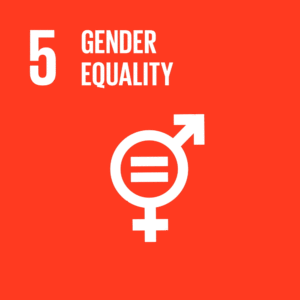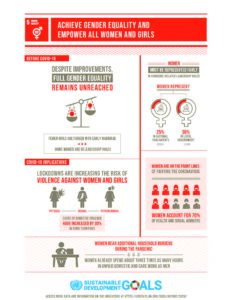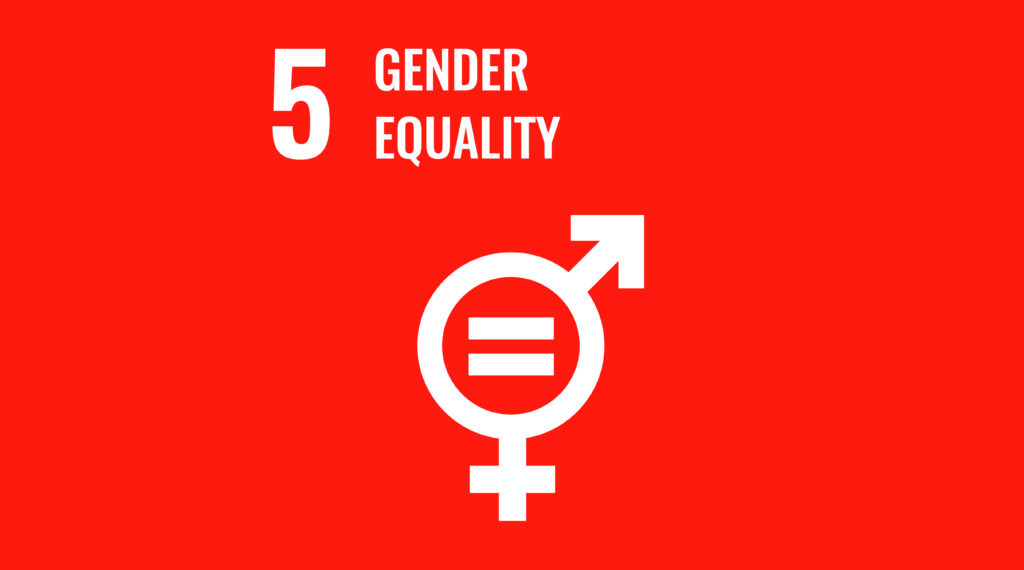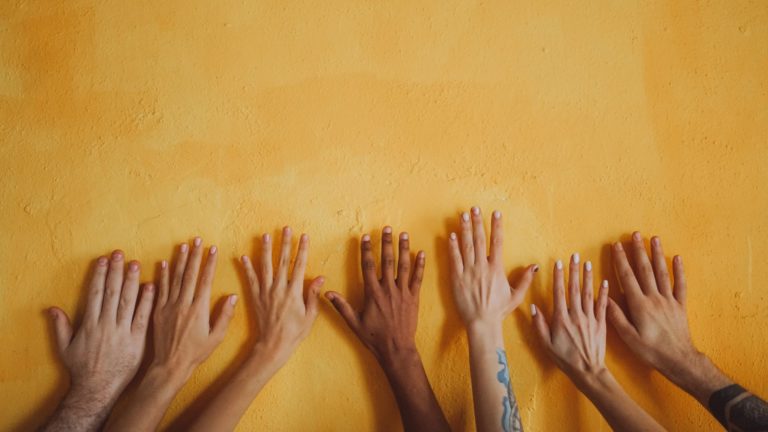Gender Equality
Gender equality is not only a fundamental human right, but a necessary foundation for a peaceful, prosperous and sustainable world. There has been progress over the last decades: More girls are going to school, fewer girls are forced into early marriage, more women are serving in parliament and positions of leadership, and laws are being reformed to advance gender equality.
Despite these gains, many challenges remain: discriminatory laws and social norms remain pervasive, women continue to be underrepresented at all levels of political leadership, and 1 in 5 women and girls between the ages of 15 and 49 report experiencing physical or sexual violence by an intimate partner within a 12-month period.
The effects of the COVID-19 pandemic could reverse the limited progress that has been made on gender equality and women’s rights. The coronavirus outbreak exacerbates existing inequalities for women and girls across every sphere – from health and the economy, to security and social protection.
Women play a disproportionate role in responding to the virus, including as frontline healthcare workers and carers at home. Women’s unpaid care work has increased significantly as a result of school closures and the increased needs of older people. Women are also harder hit by the economic impacts of COVID-19, as they disproportionately work in insecure labour markets. Nearly 60 per cent of women work in the informal economy, which puts them at greater risk of falling into poverty.
The pandemic has also led to a steep increase in violence against women and girls. With lockdown measures in place, many women are trapped at home with their abusers, struggling to access services that are suffering from cuts and restrictions. Emerging data shows that, since the outbreak of the pandemic, violence against women and girls – and particularly domestic violence – has intensified.
Sustainable Development Goals
The 2030 Agenda for Sustainable Development was adopted by all United Nations Member states in 2015, an agenda that provides a shared blueprint for peace and prosperity for people and the planet, now and into the future.
The 17 Sustainable Development Goals (SDGs) are an urgent call for action by all countries – developed and developing – in a global partnership. They recognize that ending poverty and other deprivations must go hand-in-hand with strategies that improve health and quality education, reduce inequality, and spur economic growth – all while tackling climate change and working to preserve our oceans and forests. Learn more about the UN SDG’s.


What’s the goal here?
To achieve gender equality and empower all women and girls.
Why?
Women and girls represent half of the world’s population and therefore also half of its potential. But, today gender inequality persists everywhere and stagnates social progress. Women continue to be underrepresented at all levels of political leadership. Across the globe, women and girls perform a disproportionate share of unpaid domestic work. Inequalities faced by girls can begin right at birth and follow them all their lives. In some countries, girls are deprived of access to health care or proper nutrition, leading to a higher mortality rate.
How much progress have we made?
International commitments to advance gender equality have brought about improvements in some areas: child marriage and female genital mutilation (FGM) have declined in recent years, and women’s representation in the political arena is higher than ever before. But the promise of a world in which every woman and girl enjoys full gender equality, and where all legal, social and economic barriers to their empowerment have been removed, remains unfulfilled. In fact, that goal is probably even more distant than before, since women and girls are being hit hard by the COVID-19 pandemic.
How does gender inequality affect women?
Disadvantages in education translate into lack of access to skills and limited opportunities in the labour market.Women’s and girls’ empowerment is essential to expand economic growth and promote social development. The full participation of women in labour forces would add percentage points to most national growth rates—double digits in many cases.
Are there any other gender-related challenges?
Yes. Worldwide, 35 per cent of women between 15-49 years of age have experienced physical and/or sexual intimate partner violence or non-partner sexual violence. 1 in 3 girls aged 15-19 have experienced some form of female genital mutilation/cutting in the 30 countries in Africa and the Middle East, where the harmful practice is most common with a high risk of prolonged bleeding, infection (including HIV), childbirth complications, infertility and death.
The COVID-19 lockdown further caused domestic violence to increase in many countries, showing the critical importance of social protection for women and girls. The Spotlight Initative, an EU/UN partnership, is a global, multi-year initiative focused on eliminating all forms of violence against women and girls (VAWG).
But, why should gender equality matter to me?
Regardless of where you live in, gender equality is a fundamental human right. Advancing gender equality is critical to all areas of a healthy society, from reducing poverty to promoting the health, education, protection and the well-being of girls and boys.
What can we do to fix these issues?
If you are a girl, you can stay in school, help empower your female classmates to do the same and fight for your right to access sexual and reproductive health services. If you are a woman, you can address unconscious biases and implicit associations that form an unintended and often an invisible barrier to equal opportunity.
If you are a man or a boy, you can work alongside women and girls to achieve gender equality and embrace healthy, respectful relationships. You can fund education campaigns to curb cultural practices like female genital mutilation and change harmful laws that limit the rights of women and girls and prevent them from achieving their full potential.
United Nation Sustainable Development Goals
(United Nations why it matters)
Facts and Figures
- Globally, 750 million women and girls were married before the age of 18 and at least 200 million women and girls in 30 countries have undergone FGM.
- The rates of girls between 15-19 who are subjected to FGM (female genital mutilation) in the 30 countries where the practice is concentrated have dropped from 1 in 2 girls in 2000 to 1 in 3 girls by 2017.
- In 18 countries, husbands can legally prevent their wives from working; in 39 countries, daughters and sons do not have equal inheritance rights; and 49 countries lack laws protecting women from domestic violence.
- One in five women and girls, including 19 per cent of women and girls aged 15 to 49, have experienced physical and/or sexual violence by an intimate partner within the last 12 months. Yet, 49 countries have no laws that specifically protect women from such violence.
- While women have made important inroads into political office across the world, their representation in national parliaments at 23.7 per cent is still far from parity.
- In 46 countries, women now hold more than 30 per cent of seats in national parliament in at least one chamber.
- Only 52 per cent of women married or in a union freely make their own decisions about sexual relations, contraceptive use and health care.
- Globally, women are just 13 per cent of agricultural land holders.
- Women in Northern Africa hold less than one in five paid jobs in the non-agricultural sector. The proportion of women in paid employment outside the agriculture sector has increased from 35 per cent in 1990 to 41 per cent in 2015.
- More than 100 countries have taken action to track budget allocations for gender equality.
- In Southern Asia, a girl’s risk of marrying in childhood has dropped by over 40per cent since 2000.
Goal 5 targets
- 5.1 End all forms of discrimination against all women and girls everywhere
- 5.2 Eliminate all forms of violence against all women and girls in the public and private spheres, including trafficking and sexual and other types of exploitation
- 5.3 Eliminate all harmful practices, such as child, early and forced marriage and female genital mutilation
- 5.4 Recognize and value unpaid care and domestic work through the provision of public services, infrastructure and social protection policies and the promotion of shared responsibility within the household and the family as nationally appropriate
- 5.5 Ensure women’s full and effective participation and equal opportunities for leadership at all levels of decisionmaking in political, economic and public life
- 5.6 Ensure universal access to sexual and reproductive health and reproductive rights as agreed in accordance with the Programme of Action of the International Conference on Population and Development and the Beijing Platform for Action and the outcome documents of their review conferences
- 5.A Undertake reforms to give women equal rights to economic resources, as well as access to ownership and control over land and other forms of property, financial services, inheritance and natural resources, in accordance with national laws
- 5.B Enhance the use of enabling technology, in particular information and communications technology, to promote the empowerment of women
- 5.C Adopt and strengthen sound policies and enforceable legislation for the promotion of gender equality and the empowerment of all women and girls at all levels
Links
United Secretary-General Campaign UNiTE to End Violence Against Women
Every Woman Every Child Initiative
United Nations Children’s Fund (UNICEF)
UN Population Fund: Gender equality
UN Population Fund: Female genital mutilation
UN Population Fund: Child marriage
UN Population Fund: Engaging men & boys
UN Population Fund: Gender-based violence
World Health Organization (WHO)
UN Office of the High Commissioner for Human Rights
UN High Commissioner for Refugees (UNHCR)
UN Education, Scientific and Cultural Organisation (UNESCO)
UN Department of Economic and Social Affairs, Gender Statistics
We, at AI for Good foundation, are using AI + ML initiatives in pursuit of the 17 SDGs. With various projects in progress, such as our Climate Trend Scanner and the SDG Data Catalog, we are determined to help and facilitate achieving the goals.







